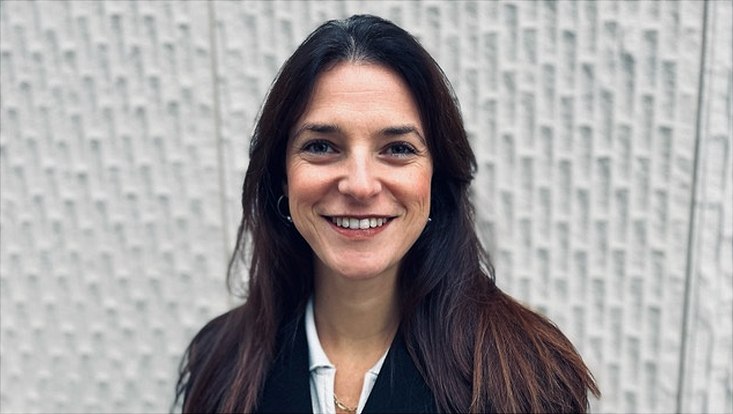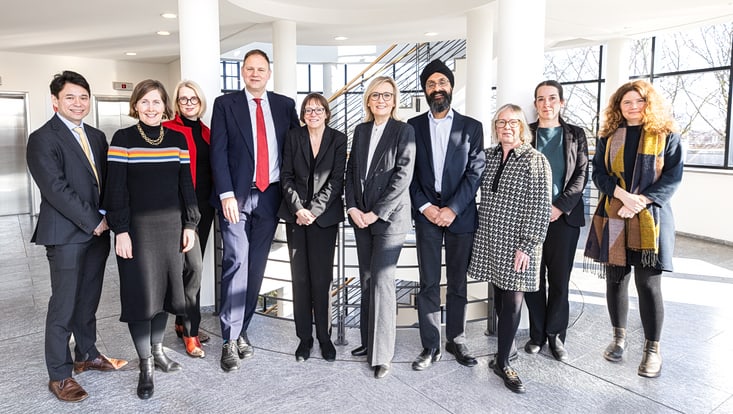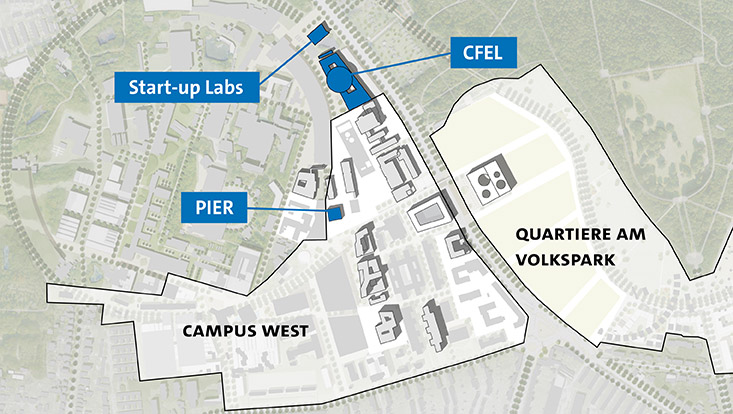Welcome aboard!“My group will focus on developing cutting-edge machine learning techniques for Astrophysics”Every year, University of Hamburg welcomes many new researchers. Here, we present part of a series to introduce them and their areas of research.
25 November 2024, by Lucie-Smith/Red.

Photo: privat
Every year, University of Hamburg welcomes many new researchers. Here, we present part of a series to introduce them and their areas of research. This time: cosmologist Luisa Lucie-Smith.
Prof. Dr. Luisa Lucie-Smith came from the Max Planck Institute for Astrophysics in Munich, and has been working as a Professor for Astrophysics with a focus on Machine Learning in Astrophysics, in the Faculty of Mathematics, Informatics and Natural Science since 18 November 2024. She is part of the research team at the Hamburg Observatory and contributes to the Cluster of Excellence Quantum Universe.
My research area in 3 sentences:
I'm a cosmologist working on some of the most profound questions about our universe — how it began, what it is made of, and how it is structured. Through numerical simulations, I create virtual universes to study the formation of galaxies and cosmic structures on the largest scales. I combine this with explainable artificial intelligence techniques to model the universe's complex evolution across cosmic time, hoping to uncover insights into the elusive nature of dark matter and dark energy.
I explain what I do to my friends as. . .
All the matter we see and touch around us makes up only five percent of the total energy budget in the Universe. The rest of it we don’t understand: we think most of matter in the Universe consists of ‘dark’ matter which we cannot see but is gravitationally pulling things together. Another major component of the Universe is an even more mysterious form of energy called ‘dark energy’. My efforts as a cosmologist focus on understanding the nature of these two components by creating universes in a computer which should look like the real Universe if our theory models are correct. If we find discrepancies between the predictions of our computer simulations and the observed Universe, that means that we must revisit something about our cosmological model.
I am so glad to be in Hamburg, the city and the University, because. . .
I am very excited to live in Hamburg because it is diverse, vibrant and different at every corner you turn. I love being surrounded by water, and the city seems to host so many of my favourite music bands. The University is a strong hub for both Astrophysics and Machine Learning research, so I am looking forward to collaborating with my new colleagues in both areas of research in a supportive environment. I am also excited to become a part of the collaborative network of the ‘Quantum Universe’ Cluster of Excellence. Hamburg is a good fit for both my personal interests and professional life!
My plans for working at Universität Hamburg include. . .
My immediate plans involve starting my new research group at the University of Hamburg and establishing it at the forefront of the field of Cosmology and Artificial Intelligence. My group will focus on developing cutting-edge machine learning techniques to extract as much information as we can about fundamental physics from the complex large-scale structure of the Universe. I want to focus my efforts on mentoring and supervising young researchers, guiding them to develop the necessary skills to become good scientists and supporting them throughout their careers. I want to especially promote women and under-represented communities in academia, and get more involved in public outreach. I would also like to create a stronger connection amongst cosmologists across Germany including colleagues in Munich, Bonn, Bielefeld and others across the country.
Students should definitely attend my courses because. . .
Artificial Intelligence, particularly machine learning, is becoming increasingly prevalent in our world. Gaining an understanding of how these algorithms function, when to apply them, and recognizing their strengths and limitations will be beneficial for students, no matter their future career paths. Research in fields like cosmology and astrophysics involves vast and complex datasets – these offer ideal and challenging testing grounds for advanced machine learning methods. I aim to inspire students with a passion for interdisciplinary projects—I find it incredibly rewarding to discover synergies across different fields such as machine learning and physics. Even this year's Nobel Prize emphasized the profound impact of physics on foundational machine learning techniques!
Reaching out to the world: I work with the following international and federal institutions and universities. . .
One of the best things about being an Astrophysicist is being part of a large, international and fun community. We travel around the world to conferences and discuss new results and techniques, and work collaboratively to understand what current observations tell us about the Universe. I have amazing collaborators spread across the globe including Europe, the UK, the US, and Japan.
My research is important to society, to help resolve the following issues:
Astrophysicists don’t directly resolve practical issues in society. We tackle fundamental questions about our existence and the world we live in. My research lies at the interface between physics and artificial intelligence, focusing on the development of explainable machine learning models. The aim is to move beyond black-box approaches by providing insights into the decision-making processes of these algorithms. As AI becomes increasingly integrated into our lives, explainability also becomes crucial for us to truth these algorithms and use them safely and ethically across society. I hope to establish more direct connections between society, industry and academia to share our knowledge about these tools and how best to use them.


